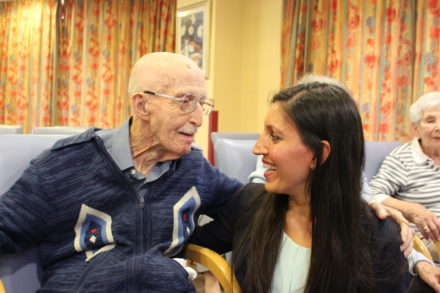
The recent conference season had an unusual focus on the youth vote. The young, previously much maligned for their political apathy, took centre stage in the wake of the cataclysms of the 2017 general election. Conservative MP Neil O’Brien went so far as to claim that the Tories “could go out of business as a political party” should they fail to win the support of young people.
There was no equivalent existential dilemma for the Labour Party about how best to harness a demographic that eluded them equally resoundingly: those aged over 65. In spite of the youth surge, turnout for this segment remained 9% higher than younger voters and could well be where any tight future general election is won or lost. This was a significant lacuna as Labour will have an opportunity to make inroads into this demographic in the coming months and years.
The logic of Conservative economic policy is one of relentless substitution and equilibrium: if one thing gets funded, another gets cut. If they are serious about courting a youth vote —and that is a big if — they will have to make a palpable and material offering to young people beyond poorly conceived memes.
Should they do so, money would likely come out of provision for the elderly. Other demographics have very little left to give in the wake of the disaster that was and is austerity economics. The social care fiasco offers a glimpse of what will occur in electoral terms, with Conservative policy increasingly alienating their base.
Given that any promise to conclude austerity is likely illusory for a party with a deeply seated impulse towards retrenchment, the Conservatives will likely start focusing on the elderly as the new object for cuts. Should (as is already happening) social provisions for retirees start to dissolve, from free TV licenses to free public transport, there will be plenty for Labour to work with.
Either way, the Labour Party should speak out about the threat Conservative policy poses to the elderly. Voicing direct warnings about what might come next will, at the very least, demonstrate to the over-65s the sort of sacrifices other demographics have been forced to make and explain the austerity-fuelled new youth radicalism that has emerged.
These threatened policies highlight a way of engaging with these voters. New Labour had an uncanny knack for seemingly making small pragmatic interventions into daily life that had the potential to be personally and socially transformative. If Labour wants to win an election, it must consider not just what similar offerings they might make but the tenor of their policy offerings to the elderly more broadly.
The narrative of the last manifesto aimed for something substantially more ambitious than incremental reform: a root-and-branch rewiring of the relationship between the state and the public. Its emphasis, however, was on harnessing the dynamism of youth to put forward a vision of a more hopeful future, which excludes speaking to older generations of voters.
With a bit of imagination, the language and narrative of the last general election can be directed towards the elderly. The Labour Party can do so by retaining its emphasis on the future and repurposing it for the elderly by using the language of care and bequest. The party should be asking them: what sort of world would you like to leave behind? How would you, as a generation, like to be remembered?
It is clear that contemporary conservatism has no answers either to the existential crises of futurity — from environmental catastrophe to far-right extremism to automation — or the more pragmatic business of living a good life in the face of unaffordable property prices and precarious work. A combination of showing the threats to social care for the elderly posed by austerity, creating a tangible policy offering, and making some adjustments in the composition of the manifesto’s political narrative could make all the difference at a coming election.
Edward Sugden is a lecturer at King’s College London.




More from LabourList
‘What Batley and Spen taught me about standing up to divisive politics’
‘Security in the 21st century means more than just defence’
‘Better the devil you know’: what Gorton and Denton voters say about by-election